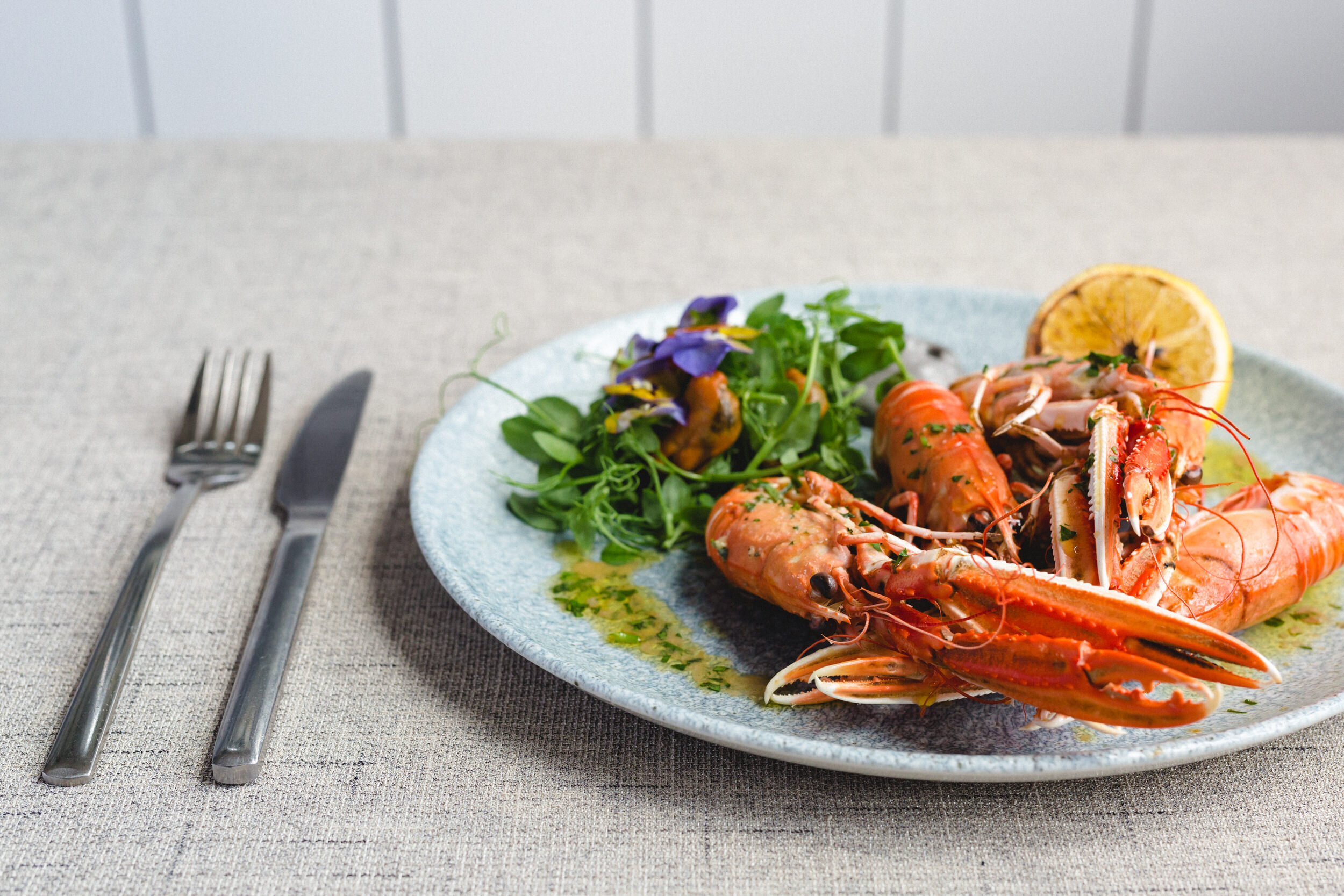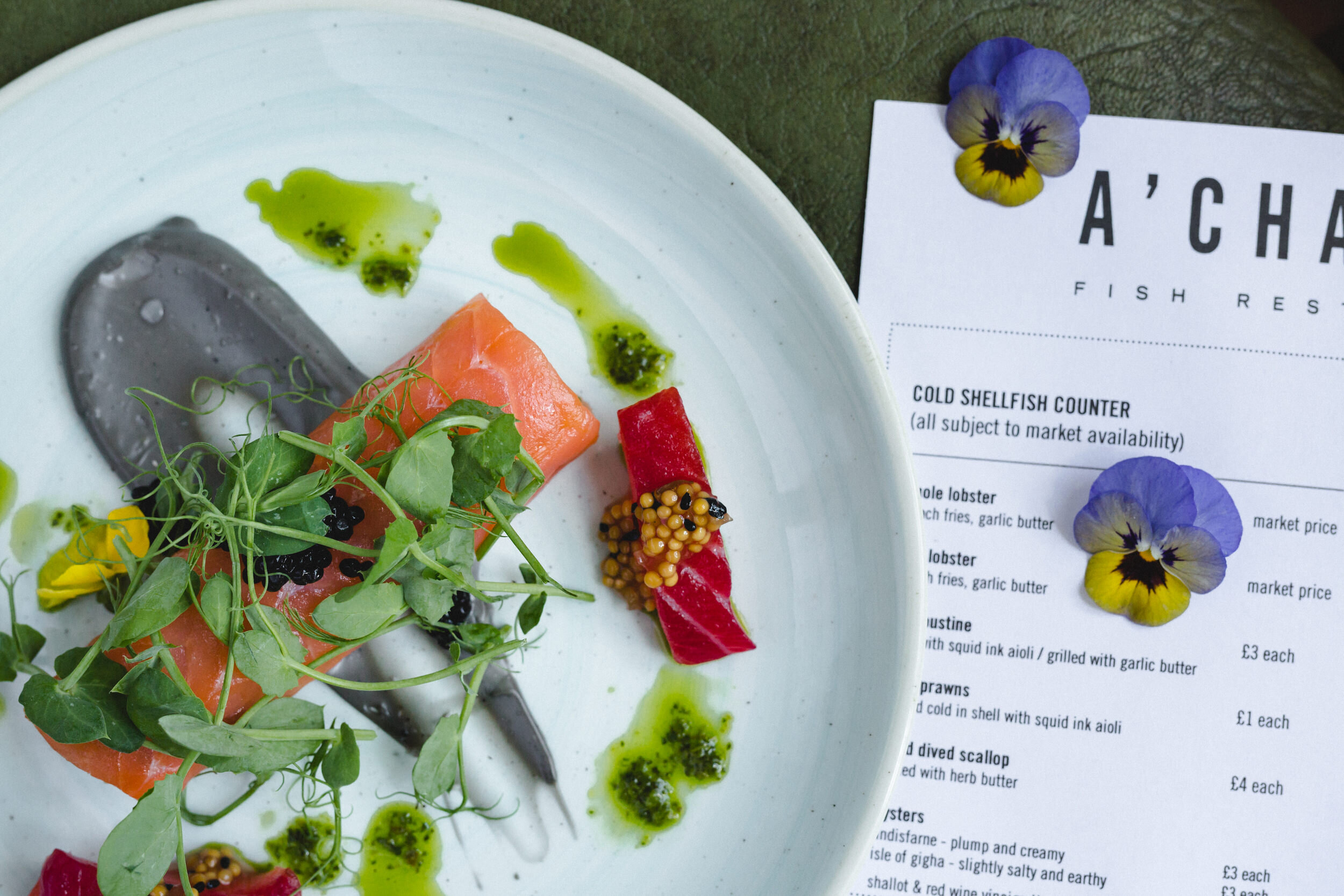SEO basics for Scottish restaurants.
Today, we're looking at simple processes that Scottish restaurants, hotels and other F&B/hospitality businesses can follow in order to improve their SEO and boost their rankings on Google. Realistically, the principles here will fit any business that's looking to do better on search engine results pages. We've got a helpful follow-up to this blog specifically on the topic of keyword research, which is an essential next step; this is a more general primer on the topic of SEO.
First thing to note: this is not a catch-all "everything you need to know about SEO". There are awesome resources all over the web that will give you that kind of detail, and there's hours and hours to be spent taking notes and watching YouTube tutorials on that stuff. We've made a handy list of some our favourites at the end, under "further reading", but that's not what we're trying to do here.
No: this is our highly curated list of things we think Scottish restaurants, hotels, F&B and hospitality businesses should focus their energies on, in order to hopefully have the best possible impact on their SEO, at the lowest time cost. Hopefully there's some stuff in here that will work for you, and if there is, please don't be shy about letting us know in the comments!
What is Search Engine Optimisation (SEO) in Digital Marketing for Restaurants?
Search engine optimisation (SEO) is the art of driving quality traffic to your website from organic search results, and then increasing the number of visits to your site from this quality traffic. In a digital age where search engine results pages (or SERPs) are packed with paid adverts, sound SEO practices will bring you traffic that you don’t need to pay for! It’s all about relevance. Take Google for example. Google wants to present searchers with the most relevant information, as quickly as they can, and have a ridiculous number of algorithms set up to determine which websites to show first for search terms. There are hundreds of restaurants in the Glasgow area, so how will you ensure you’re appearing in search results? It’s all about creating relevance between your page content and the search terms, that is what will see you rank higher in searches - without having to pay for it!
However - we're getting ahead of ourselves. Let's first look at the basics.
WHAT ARE THE FACTORS THAT AFFECT MY POSITION ON GOOGLE SEARCH RESULTS PAGES?
There are a vast number of factors that all contribute to your SEO, from well written meta titles and use of keyword-focused H1s and H2s (these are types of titles) in your on-page text, to the number and quality of backlinks directed towards the domain (and specific pages for that matter). Below are the main factors attributed to ranking factors according to SEMrush:
(Taken from the SEMrush Ranking Factors Study 2.0)
Maybe there’s a few surprises in there, some things that you didn’t think would have any impact on your SEO? All of these are part of the algorithm that search engines use to determine the relevance of your domain or page to the searcher’s queries. Being able to understand these, how they piece together, and then translating them into your website set-up and content will help to improve your ranking in any returned search pages - this is the optimisation part of SEO.
Here's some of the key steps that we think you need to take in order to step up your SEO game.
1 - Do Some Proper Keyword Research
Note: we've got an awesome how-to on keyword research right here.
Determining relevant keywords is an integral part of any SEO strategy, as this is where you will gain your quality traffic in results. Quantity is great, sure, but if the quality of the traffic is low your results will be poor. As an example, try to think along the lines of ‘what cuisine do we offer?’, ‘where is my restaurant based?’, or ‘are we gourmet or budget?’. This is where you’ll go from a general ‘restaurant in Glasgow’ in searches to a ‘gourmet burger restaurant in Glasgow West End’. The traffic to the latter will be of higher quality as the searchers are being a lot more specific and know what they’re looking for.
A solid keyword research project will allow you to better understand the searches being conducted by your audience and then translate them into your SEO strategy. This will help to drive that organic traffic, which will in turn contribute to a number of the factors listed above (for example, reputable sources may choose to share a blog you have posted if it contains excellent content, or people may stay on your page longer and click through to other pages, decreasing the bounce rate). We've written a hopefully very helpful primer on keyword research here, and it's a key step for any successful DIY campaign to improve SEO standing.
2 - Create Some Awesome Content
Look at the key ranking factors in the above chart from SEMrush. Time on site, pages per session, and bounce rate (the number of people who leave your site without having visited any other pages) are all taken into account, and those factors are given higher importance than almost any other factor besides direct traffic. So - what does that mean? It means you need to make sure that your content is as relevant and as high in quality as it possibly can be for your audience that does land on your site.
So - what are you good at? What do you have to share with the world, that will be a gift to your target audience? If you're a hotel in the heart of the city, then your customers are often holidaymakers, or folk travelling for business. What can you offer them that will be of genuine interest? A curated guide to the city's hidden gems? A guide to the best ways to travel around the city?
You can use keyword research to come up with awesome content ideas, and to understand exactly what your audience is searching for. And if you can create really novel content - by serving a niche audience, or by giving really in-depth and interesting stuff away, or something like that - then you'll have a greater chance of getting more clicks, and more time spent on pages etc. - and it will even help you achieve number three on our list:
3 - Get Good Quality Inbound Links
Getting people to link directly to your site from theirs is a difficult job. Creating awesome and highly bespoke content is one way of doing it, as noted. Fostering good relationships with businesses that already have the respect of Google, and securing meaningful and useful links to your site from theirs, is another. As you can see from the SEMrush data above, backlinks to your site are a fairly important factor in Google determining your overall credibility.
As far as networking with other complementary businesses - there's nothing at all wrong with recommending each other with links. That could be neighbours who don't directly compete with you. It could be joining directory sites that curate listings in specific niches. Assuming that you're negotiating backlinks from a small number of businesses, it'll likely have a modest but useful effect. Note: there's a dodgy practice called link farming, where companies will pay to have thousands of low-quality sites link to yours in an attempt to game Google's systems. That's not going to help you one bit. Avoid that shit, obviously. And - if your network is massive, and they all spring up new links to your site within hours of each other, then it might look like exactly that. So take it slow.
A great (albeit difficult) way of getting decent quality inbound links - as well as other forms of attention! - is to come up with something genuinely novel that's likely to attract the attention of local press, or to capture the imagination of your audience on social media, or to be picked up by relevant blogs, or talked about by "influencers" in your space. The bar for going viral locally is not particularly high - and sites like Glasgow Live will regularly pick up fairly innocuous stories about all manner of minor occurrences in Glasgow. If you can create something that captures the interest and that has local press asking to feature it, then try and negotiate a linkback that's specifically not a "nofollow" link (nofollow links are links that Google is effectively told to disregard for SEO purposes).
There's a great network of food bloggers in the Glasgow area who produce genuinely high quality content and command excellent readerships. There's excellent reviews of a comprehensive selection of Glasgow restaurants on Glasgow Food Geek, for example. Inviting bloggers and other "influencers" to dine with you is always worth a go, as long as you're confident in your service offering. We're working on a feature just now on how influencers can fit into your marketing plans, and some of the rules of etiquette etc. when approaching them. Got specific questions you'd like answered? Leave a comment below!
4 - Deal With Low-Hanging Fruit
There's some really simple things you can do to further improve your SEO standing - starting with making sure you've got a SSL certificate on your domain (meaning that your website loads with https in the URL and not http). That might sound complicated if you're not tech-minded, but it's probably a simple case of logging into your domain provider and following their instructions to upgrading (there may be a cost).
Then, there's the best practices for your website copy and meta-descriptions. This stuff again seems complex, but that's genuinely just because it feels a bit jargon-y. The principles are really simple, and there are plenty of great guides out there to making sure your meta titles, descriptions and web copy are all keyword-optimised, and we've listed some of those resources at the bottom of the blog here. However - if that's something that you straight-up wish to outsource, we actually provide a really affordable service in rewriting said sections for you - starting from just £200. We also provide keyword research reports on a very affordable basis - to talk about doing this kind of thing, don't hesitate to get in touch!








